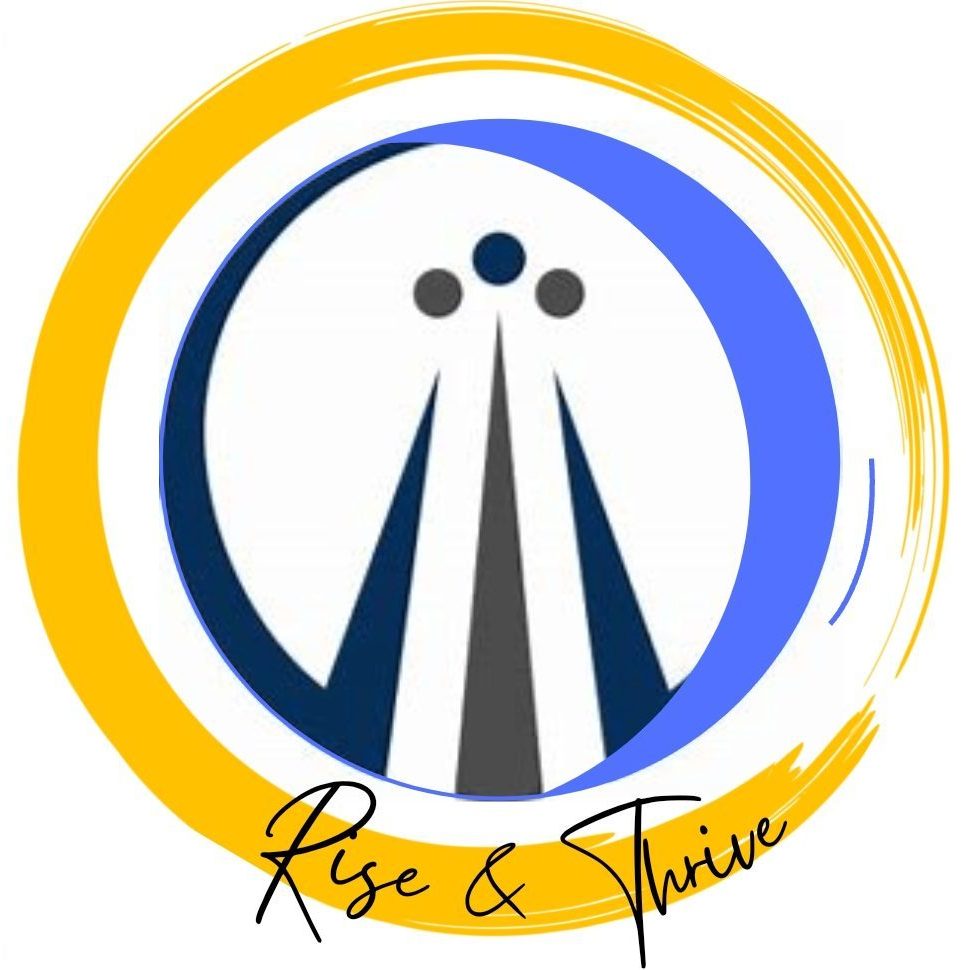
What?
A “trigger” is an adverse emotional reaction to a stimulus that causes a traumatic or painful experience to resurface. It can be any sensory reminder related to sight, hearing, smell, taste, touch or instinct. A trigger should never be minimised or ignored. It is a very real experience and can cause extreme overwhelm or distress as it usually brings a person straight back to a traumatic experience or a very difficult time in their lives. Being triggered is not about being too sensitive, our brain is literally alerting our body through our sympathetic nervous system that we are under threat. People who are triggered can feel like they are catapulted right back to a stored trauma and relive it all over again.
We all have triggers based on our fears, old beliefs, and subconscious patterns. Triggers can relate to mental, emotional or physical abuse but they can also relate to trauma incurred through loss, grief, tragedy, fear, anxiety, abandonment, PTSD (Post Traumatic Stress Disorder) or many other disorders such as substance abuse, alcoholism, eating-disorders, OCD (obsessive compulsive disorder), etc.
How?
Our reptilian or instinctual brain is the most primal part of our brain and is responsible for our survival-related functions; our fight-or-flight responses and instinctual reactions. It controls all the life-sustaining functions of our body such as our heart rate, breathing, body temperature, excretion, etc. Our limbic system wraps around the reptilian brain. This part of the brain handles our emotions, behaviour and long-term memory. It is where the amygdala or “threat detection centre” is located. The cerebral cortex is our outer brain and our most evolved brain. It is responsible for logic and reasoning. It’s referred to as our “thinking” brain as it is where we have high level cognitive abilities such as abstract thoughts, language, imagination, motor control, spatial reasoning and higher-order thinking.
When we are triggered this evolved part of the brain shuts down and we revert back to our survival and emotional brain. These areas of the brain produce stress hormones and alert our sympathetic nervous system to ensure an instant response. In other words, when we are triggered, we cannot access reason or logic, or even sometimes the ability to speak, we just simply react. The reptilian brain and limbic system are most closely associated with our basic primal drives and body processing. Instinctive trauma responses, such as fight, flight, freeze, or our startle responses are all activated in these areas of the brain.
Why?
Triggers can be internal or external.
Internal triggers come from within us, our own mind or body. They can be memories of a physical sensation like muscle tension, heart racing or physical pain, or emotional sensations such as anger, loneliness, anxiety, overwhelm, vulnerability or sadness. Our thoughts, insecurities and unmet needs can trigger us.
External triggers come from our environment around us, from people, places or specific situations we experience. What may be a normal, everyday situation or minor inconvenience for some people, may be triggering for others. For example, the content in a movie, news read, social media post, song or conversation can have potential triggers. Change of circumstances, dates, holidays, specific locations, anniversaries, confined spaces, smells such as perfume, alcohol or smoke, certain sounds, loud noises, someone raising their voice, aggression or disrespect can trigger someone. Someone recovering from addiction may be triggered in social setting, someone who experienced abandonment in childhood may be triggered when their texts are ignored or they are left alone, someone that was a victim of abuse may be triggered by loud noises or intrusive people, someone who experienced a tragedy may be triggered by a similar tragedy on the news and so on….
When someone “overreacts” they are usually triggered. It is important to be aware of this and have a deeper understanding that someone triggered can only function from their limbic and reptilian brain. The reasoning part of the brain, the prefrontal cortex, does not and cannot listen or rationalise the situation at that moment in time. They will either fight-react, flight-run or freeze-panic because they are responding from survival mode.
How to Deal with Triggers
We must learn how to deal with triggers rather than try to avoid them or repress them because we cannot always anticipate when we may be triggered. It is far more important to take a deep look into the origins of the trigger and learn skills to manage our reactions. We need to learn how to respond to triggers rather than react to them. This work takes emotional processing, which can be aided by a therapist, but we can also learn effective coping strategies to help alleviate the impact of triggers.
Here are a few:
1. Become aware of the physical signs when we are reacting to a trigger such as our heart rate and breathing. Learning simple breathwork exercises to regulate our nervous systems can help us have more control over our responses to triggers. Breathing long slow breaths through our nose activates nitric oxide which has so many superpowers. It not only oxygenates our blood faster, but it also regulates our heart rate and nervous system, helping us release anxiety and calm down easier.
2. Name it. Become familiar with the trigger and the circumstances. Is it repeated often, are there more than one? Does it happen around particular people, words, places, or behaviours? Once we are familiar with them, we can be ready for them, and we can respond consciously instead of acting on reflex.
3. Find the source of the trigger, what was the original event or trauma? This is crucial to free ourselves from it. We can then map where the past invades the present which will allow us to do the inner work. This usually reduce a triggers impact substantially.
4. Be aware of projection. For example, if you were a victim of violence, you might be triggered by someone’s anger even though anger and violence aren’t inevitably linked. This is because your body fears a repetition of that original violent act. Or maybe you experienced a betrayal and now you’re unsure if you can trust again. You may be sensitive to similar patterns of behaviour that are unintentional. We predict outcomes based on past experience, but these triggers can lead to self-sabotage or powerlessness. It’s so important to seek help to deal with these traumas so new circumstances don’t trigger us unnecessarily.
5. Notice if you are hyper aroused. When we’re triggered, cortisol and adrenaline course through our veins so we might feel disoriented, out of sorts, vulnerable or disorganised. We are usually unable to self-regulate at that moment. If we catch the feelings quickly, we can remove ourselves from the trigger and have calming techniques on the ready. Doing a body scan, walking, exercising, journaling, having a cold shower, can all help us relax and bring us back to the present moment.
6. Don’t fight the inner voice. If you’re experiencing an internal trigger and having self-deprecating or obsessive thoughts, try to relinquish them through empowering affirmations such as “I can still experience positive energy even when I am triggered”, “I am working towards beating this trigger” or “I am grateful for the filtering system I have to protect my energy”, etc. Our inner critic can become a tool to help us evolve.
7. Recognise and understand your emotions. This is vital for your well-being. Our emotions are our body’s way of communicating with us about what is going on, for example, if you have been let down, you may experience anger, fear or sadness and become triggered when it happens again. When we don’t address our emotions, we find it difficult to move forward and equate our experiences with possible warning signs. We can become more susceptible to triggers when the emotions surface again. When we understand our emotions, we are less likely to react inappropriately when we have strong feelings.
8. Step away and let your ego calm down. When we’re triggered, we lose our objectivity. We may feel like the wind is knocked out of us. This makes it much harder to say what needs to be said. Try stepping away for a moment to let the ego calm down. This makes it easier to communicate nonjudgmentally about the effect someone’s action or an experience has on us.
9. Try an “echo” response. Direct the negative energy that has triggered you back to its origin. If you are triggered by someone disrespecting you or insulting you, repeat out loud what they have said so that they can hear the exact words that are triggering for you. Sometimes people don’t realise how their words can trigger so pointing it out can put the responsibility back on them and empower you rather than let the trigger spiral you into a deeper state of anxiety.
10. Know your people. Certain family members and friends can trigger you. Many people find family occasions such as Christmas triggering because old wounds can resurface. The people closest to us know how to push our buttons and we can be our most reactive around them. Try to be as present as you can and if you have a family member or friend that is particularly tricky try the “kill them with kindness” approach to disarm them before they can trigger you. Putting boundaries in place with your loved ones is vital and commands respect, you can do this in a loving way.
11. Try to find the humour in your triggers. This is not to disrespect but if you know you are somebody easily triggered or certain situations or people are likely to trigger you, try to turn the circumstance into one that you can make fun of, not only does this give you control over the trigger, but it is also one of the fastest ways to diffuse your stress response.
13. Practice acceptance. As upsetting and challenging as triggers can be, it can help to remember that they are one of the body’s ways of pointing us towards our own healing journey. And every one of us has them so we are not alone. Similar triggers happen to all of us; they are simply part of life. If we practise acceptance, we can become indifferent to the triggers over time and we can also be ok with ourselves, we can accept that maybe we need to do more inner work to dilute the pain from our past. Our ultimate goal should be to detach ourselves from the trigger and focus on coping strategies. Being honest with ourselves when we feel a trigger is another step on a conscious self-care journey.
14. Seek professional help, somatic therapies are great to relieve triggers. Somatic therapies are a form of body-centred therapies that look at the connection of mind and body and use both psychotherapy and physical therapies for holistic healing. Examples of somatic therapies are breathwork, brain spotting, EMDR, dance, martial arts, yoga, reiki, acupuncture, meditation, massage, bio energy, amatsu, cold water emersion…. To find and eliminate the root cause or original triggers, therapies such as hypnotherapy, RTT (Rapid Transformational Therapy), CBT (Cognitive Behavioural Therapy), NLP (Neuro-Linguistic Programming) or BWRT (Brain Working Recursive Therapy) can all help rewire a trigger response. It is possible to get our power back and get triggers under control.
